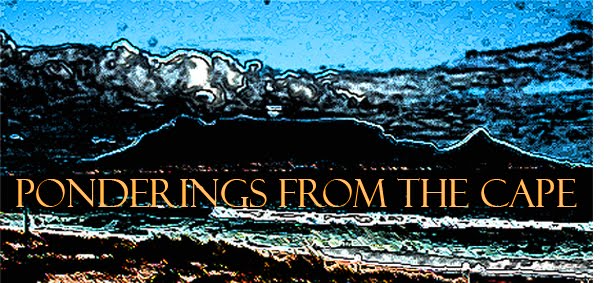TODAY'S BOOK:
Clarissa by Samuel Richardson
I don't expect that many of the readers of my blog have rushed out to buy Clarissa, or the History of a Young Lady. The reason is not the storyline or the quality of the writing, but rather the fact that it is long. In fact it is very, very long and at around a million words (I had to look this up) it is one of the longest novels in the English language.
But I've always thought one of my minor claims to fame is that I indeed read all of it and wrote a paper about it during my honours year at university. I had to make do with library copies at the time, but today it would be possible to buy it at a reasonable price in printed format or even download it in e-book format.
My English Lit professor was the wonderful and erudite classics and English Literature scholar Mike Leighton, who became an important role model and to whom I will always be grateful for helping to shape my youthful mind into a more enquiring one by showing why it is important to be "interested in everything".
He was probably as glad as I was when I finished reading and writing about Clarissa. We spoke for many hours in his office (interspersed with "I think it is time we go and get some coffee" when he noticed my attention was fading - upon which we would fetch some in polystyrene cups) about Richardson's other well-known and shorter novel Pamela, about Clarissa and its central characters Clarissa Harlowe and Robert Lovelace, about the development of the novel and about novels in epistolary format, and the morality of the times (the mid 18th century) when it was written.
He had to listen to my moans that it "really is very long" for weeks and patiently guided me to some understanding of things that probably needed a much more widely-read background than mine at the time - and certainly more life experience. I was very young (at least a year younger than most of my peers) and naive and had a great deal to learn about so many things, not only about the literature of the 17th and 18th centuries. I could identify at the time with the heroine's quest to protect her virtue, but it is only with the wisdom of hindsight that one can understand the themes better. For instance, the topic of rape, which is central to the text, is something I then found hard to comprehend.
But then, isn't it true of all or most direction of study and students? In a sense, youth is indeed wasted on the young - if we could only know a bit more about the world and life when we are thrown into the machines of academic study! I guess it is important at least to learn some of the big lessons and in later years the facts and details slowly start falling into place.
Yes, I learnt a lot by reading Clarissa, often while curled up under a half-finished crocheted blanket while mechanically continuing the crocheting. I often jested with friends that it would be a toss-up between which would be finished first - and indeed, I cannot remember which one won that race. I gave the blanket years ago to someone who needed it more than I did, but I have many fond memories of those times and of snuggling under the completed blanket on the couch or having it wrapped around me in winter in years to follow as I sat reading or working at my desk. That, however, does not mean I am going to rush to a library again to find an unabridged copy of Clarissa (there are some abridged versions available and it has been made into at least one movie and a television series). I am thinking of finally aquiring my own copy and settling down at some stage to read it all over again from a more mature woman's perspective. So many books, and in this case, so many words, but so little time...
Over the years the critical appreciation of Clarissa has see-sawed. Originally it was hailed as a masterpiece and in translated versions became influential in French and German literature. In the late 19th century its popularity waned and its literary value questioned by some. In the 20th century it was reassessed once more, but it became one of those novels read in its entirety mainly by serious students of literature (it is almost twice as long as Tolstoy's War and Peace, Vikram Seth's A Suitable Boy or Ayn Rand's Atlas Shrugged).
Would I suggest that you read it? If you are interested in the development of the novel, it is indeed worth the effort. The heroine may be just a bit too virtuous for most of us with 21th century mindset to handle and it would be a long and often tedious journey for 21st century eyes if you are reading for the sake of a story only pleasure. But it remains one of the great English - and indeed European - novels of all time with beautiful writing, detailed character development and perhaps its format as a epistolary format is particularly noteworthy. Had Richardson been writing today, I bet he might have considered publishing it in the form of a blog...?
TODAY'S PICTURE
 |
| Don't you just love the seductive beauty of a creative and beautifully crafted glass object? |







No comments:
Post a Comment
Add your comment(s) here: